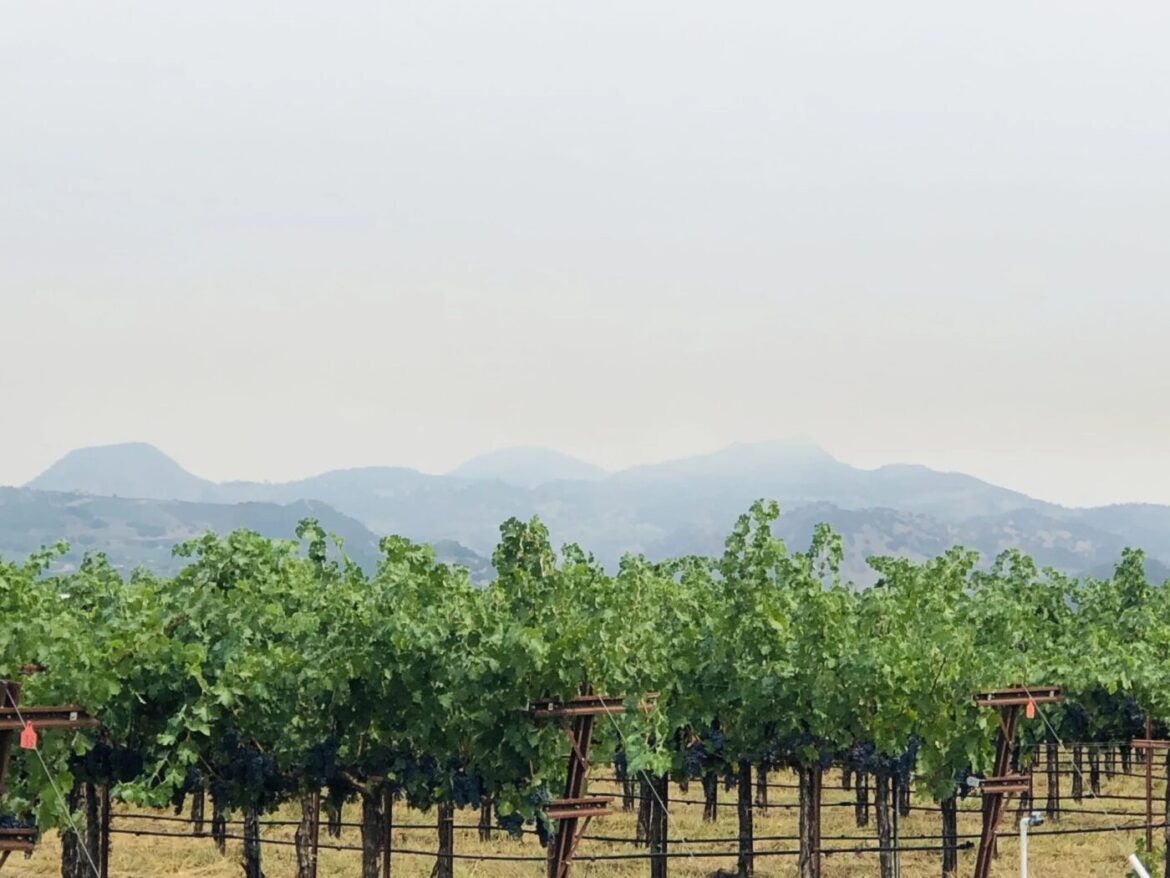A new bill in Congress proposes to use federal funds to research the impacts of wildfire smoke exposure on grapevines and vineyards, U.S. Sen. Alex Padilla, D-Calif., said when the bill was introduced earlier this month.
The Smoke Exposure Research Act requests $32.5 million to fund the U.S. Department of Agriculture to work with University of California, Davis, Oregon State University and Washington State University to research the effects of smoke exposure on viticulture and winemaking practices.
All three universities are in the country’s largest winegrowing states. The three states combined have approximately 669,000 acres of planted vineyards, according to the USDA and Oregon Wine Board.
The proposed Smoke Exposure Research Act is co-sponsored by Padilla, Sen. Jeff Merkley, D-Ore., and U.S. Reps. Mike Thompson, D-St. Helena, and Doug LaMalfa, R-Richvale.
California, Oregon and Washington have all experienced major wildfires in recent years, often during the fall, when vineyards are flush with grapes ready to harvest.
According to researchers at the UC Davis Department of Viticulture and Enology, when winegrapes are exposed to wildfire smoke for a prolonged period, the grapes can absorb the smoke through their skin, resulting in smoke taint. If winemakers choose to make wine from the tainted grapes, the results are a smoky scented, ashy tasting wine — not an appealing product for many wine drinkers. Vintners and winemakers often opt to drop or compost the grapes rather than risk producing a poor tasting wine.

Wildfires also result in property loss, a loss in tourism and impact worker health, Padilla said.
“The 2020 wildfires alone [in California] are estimated to have cost wineries and winegrape growers $3.7 billion, both from immediate fire-caused losses as well as losses in future sales due to unharvested grapes exposed to wildfire smoke,” he said.
The proposed legislation comes in the wake of the Trump Administration’s Department of Government Efficiency, or DOGE, firing in February of USDA researchers at UC Davis studying how wildfire smoke impacts winegrapes. Those researchers returned to work after the board that oversees federal employee firing appeals ordered the administration to reinstate fired probationary employees.
According to Padilla, if the Smoke Exposure Research Act passes, it would be the first time that research on smoke exposure would be formally authorized by the federal government.
The act would direct the $32.5 million toward identifying the compounds responsible for smoke taint, establishing affordable screening methods for sampling and testing smoke-exposed grapes and wines, and developing a risk assessment tool and methods to mitigate, reduce or eliminate smoke taint. A database of collected data for research will also be created.
“I think it’s important that we invest in this research, there’s too much at risk not to,” said Rich Parducci, a fourth-generation winemaker in Mendocino County. “The wine industry is a multi-billion-dollar industry, and too much fruit and wine has been lost due to smoke taint.”
Parducci’s own McNab Ridge Winery has been impacted by wildfires. The winery produces approximately 22,000 cases of wine annually from Mendocino County vineyards. In June 2008, a lightning storm resulted in multiple wildfires burning across inland Mendocino County. According to Cal Fire, the wildfire complex burned 50,000 acres of land across the county over 29 days.

During the fires, smoke permeated the air, including blanketing the pinotage vineyard in Ukiah that Parducci sources grapes from. Pinotage, a cross between pinot noir and cinsault grapes, is a rare varietal in California — a mere 52 acres were planted in the state, according to a 2019 California Department of Food and Agriculture report.
“It ruined the wine,” Parducci said, “That was my first experience with smoke-tainted fruit in Mendocino County. Since then, we’ve seen it in fruit from other regions that have been affected by wildfires.”
According to Padilla, the threat from smoke taint is invisible until tested.
“You can’t see, smoke or taste smoke damage,” he said, “which is why we must invest emerging science-based research and solution to protect growers, vintners, and consumers alike.”
Parducci agrees that investing in smoke taint research is critical to ensuring the future of winemaking is economically sustainable.
“The industry, along with academia, has made many discoveries and improvements since 2008, however there is still a lot to be learned. Investing $32.5 million to save billions in lost crops and wine seems like a sound investment,” he said.
This story originally appeared in The Mendocino Voice.
The post New bill introduced in Congress to fund research on effects of wildfire smoke on winegrapes appeared first on Local News Matters.
